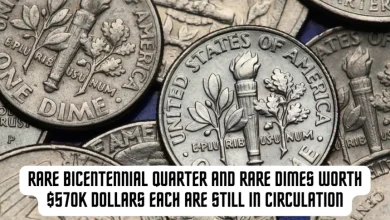This story is set amidst the mines of Sweden
This story is set amidst the mines of Sweden
Selma Lagerlöf
(1858-1940) was a Swedish writer whose stories have been translated into many languages. A universal theme runs through all of them – a belief that the essential goodness in a human being can be awakened through understanding and love. This story is set amidst the mines of Sweden, rich in iron ore, which figure large in the history and legends of that country. The story is told somewhat in the manner of a fairy tale.

Notice these expressions in the text. Infer their meaning from the context.
● keep body and soul together plods along the road impenetrable prison eased his way things have gone downhill ● hunger gleamed in his eyes unwonted joy nodded a haughty consent fallen into a line of thought
(Once upon a time there was a man who went around selling small rattraps of wire. He made them himself at odd moments, from the material he got by begging in the stores or at the big farms. But even so, the business was not especially profitable, so he had to resort to both begging and petty thievery to keep body and soul together. Even so, his clothes were in rags, his cheeks were sunken, and hunger gleamed in his eyes.
No one can imagine how sad and monotonous life can appear to such a vagabond, who plods along the road, left to his own meditations. But one day this man had fallen into a line of thought, which really seemed to him entertaining. He had naturally been thinking of his rattraps when suddenly he was struck by the idea that the whole
world about him the whole world with its lands and seas, its cities and villages was nothing but a big rattrap) It had never existed for any other purpose than to set balfs for people. It offered riches and joys, shelter and food, heat and clothing, exactly as the rattrap offered cheese and pork, and as soon as anyone let himself be tempted to touch the balt, it closed in on him, and then everything game to an end.
The world had,
of course, never been very kind to him. so it gave him unwonted Joy to think ill of it in this way. It became a cherished pastime of his, during many dreary ploddings, to think of people he knew who had let themselves be caught in the dangerous snare, and of others who were still circling around the bait.)
One dark evening as he was trudging along the road he caught sight of a little gray cottage by the roadside, and he knocked on the door to ask shelter for the night. Nor was he refused. Instead of the sour faces which ordinarily met him, the owner, who was an old man without wife or child, was happy to get someone to talk to in his loneliness. Immediately he put the porridge pot on the fire and gave him supper; then he carved off such a big slice from his tobacco roll that it was enough both for the stranger’s pipe and his own. Finally he got out an old pack of cards and played “mjolis’ with his guest until bedtime.
The old man was just as generous with his confidences as with his porridge and tobacco. The guest was informed at once that in his days of prosperity his host had been a crofter at Ramsjo Ironworks and had worked on the land. Now that he was no longer able to do day labour, it was his cow which supported him. Yes, that bossy was extraordinary. She could give milk for the creamery every day, and last month he had received all of thirty kronor in payment.
The stranger must have seemed incredulous, for the old man got up and went to the window, took down a leather pouch which hung on a nail in the very window frame, and picked out three wrinkled ten-kronor bills. These he held up before the eyes of his guest, nodding knowingly, and
then stuffed them back into the pouch.
The next day both men got up in good season. The crofter was in a hurry to milk his cow, and the other man probably thought he should not stay in bed when the head of the house had gotten up. They left the cottage at the same time. The crofter locked the door and put the key in his pocket. The man with the rattraps said good bye and thank you, and thereupon each went his own way.
Think as you read
- From where did the peddler get the idea of the world being a rattrap?
- Why was he amused by this idea?
- Did the peddler expect the kind of hospitality that he received from the crofter?
- Why was the crofter so talkative and friendly with the peddler?
- Why did he show the thirty kroner to the peddler?
Did the peddler respect the
confidence reposed in him by the crofter? But half an hour later the rattrap peddler stood again before the door. He did not try to get in, however. He only went up to the window, smashed a pane, stuck in his hand, and got hold of the pouch with the thirty kronor. He took the money and thrust it into his own pocket. Then he hung the leather pouch very carefully back in its place and went away.
As he walked along with the money in his pocket he felt quite pleased with his smartness. He realised, of course, that at first he dared not continue on the public highway, but must turn off the road, into the woods. During the first hours this caused him no difficulty. Later in the day it became worse, for it was a big and confusing forest which he had gotten into. He tried, to be sure, to walk in a definite direction, but the paths twisted back and forth so strangely! He walked and walked without coming to the end of the wood, and finally he realised that he had only been walking around in the same part of the forest. All at once he recalled his thoughts about the world and the rattrap. Now his own turn had come. He had let himself be fooled by a bait and had been caught. The whole forest, with its trunks and branches, its thickets and fallen logs, closed in upon him like an impenetrable prison from which he could never escape.



